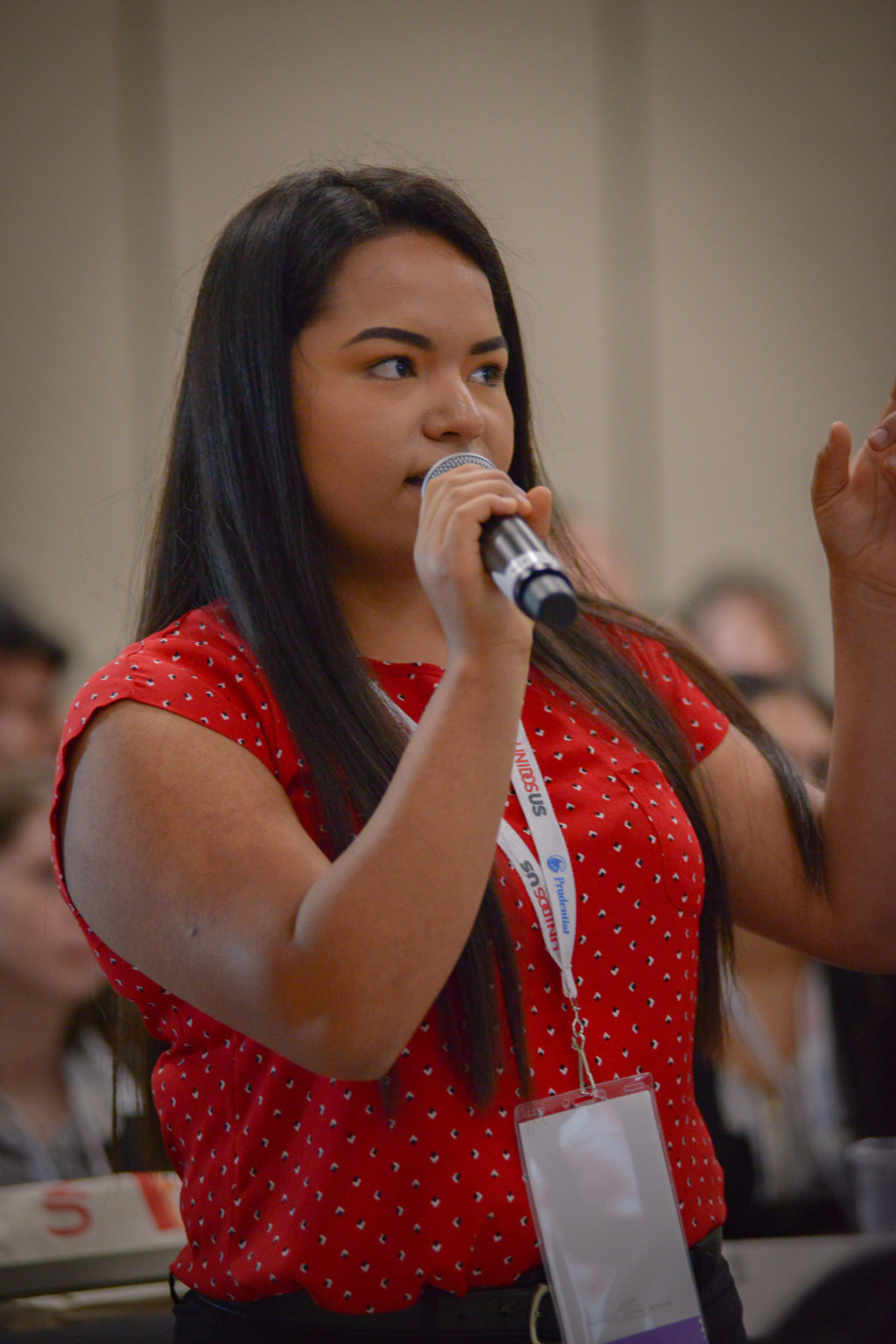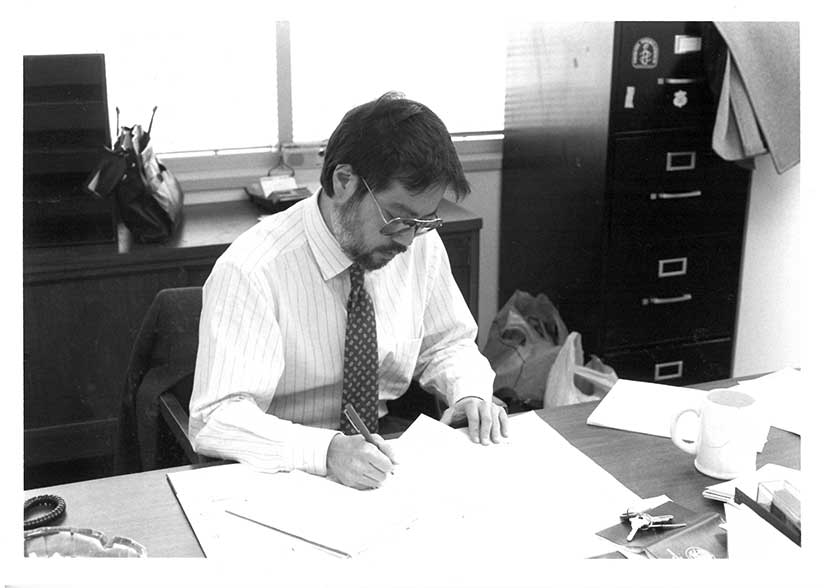Y que cumplan muchos más: We celebrate CPLC’s commitment to the whole community
It’s been 50 years in the making, and Chicanos Por La Causa (CPLC) couldn’t be in a stronger position, both economically—with an approximate $100 million budget—and strategically, with a well-established seven-year plan. One of the seven original Affiliates of today’s UnidosUS and the 2018 Far West Affiliate of the Year, CPLC is the 2018 Regional Affiliate of the Year for the Far West, and a model for many to follow. Happy 50th anniversary, CPLC!
By Beatriz Paniego-Béjar, Content Specialist, UnidosUS
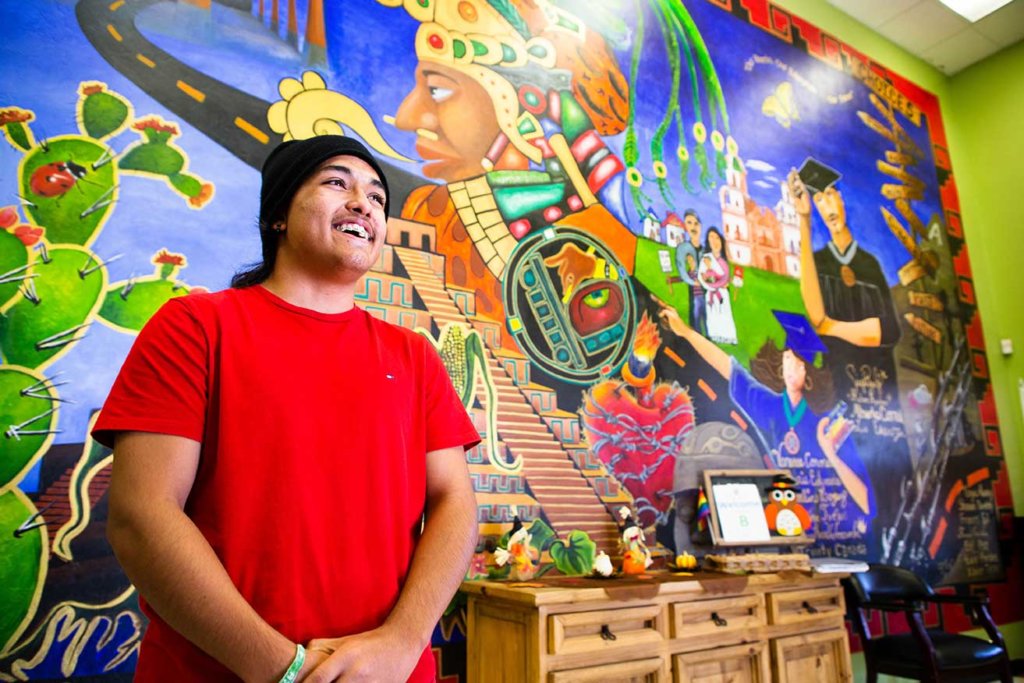
When Chicanos Por La Causa was founded in 1969, Chicanos (Mexican Americans in the United States) were the focus of the organization, and La Causa (the Cause) was to fight against the oppression Latinos were facing in Phoenix, Arizona. Today, CPLC has adapted to the times and defines “‘Chicano’ to mean anyone who believes in equal opportunity for all people, regardless of background, and ‘the Cause’ continues to evolve to meet the changing needs of the community,” according to their website.
Keep up with the latest from UnidosUS
Sign up for the weekly UnidosUS Action Network newsletter delivered every Thursday.
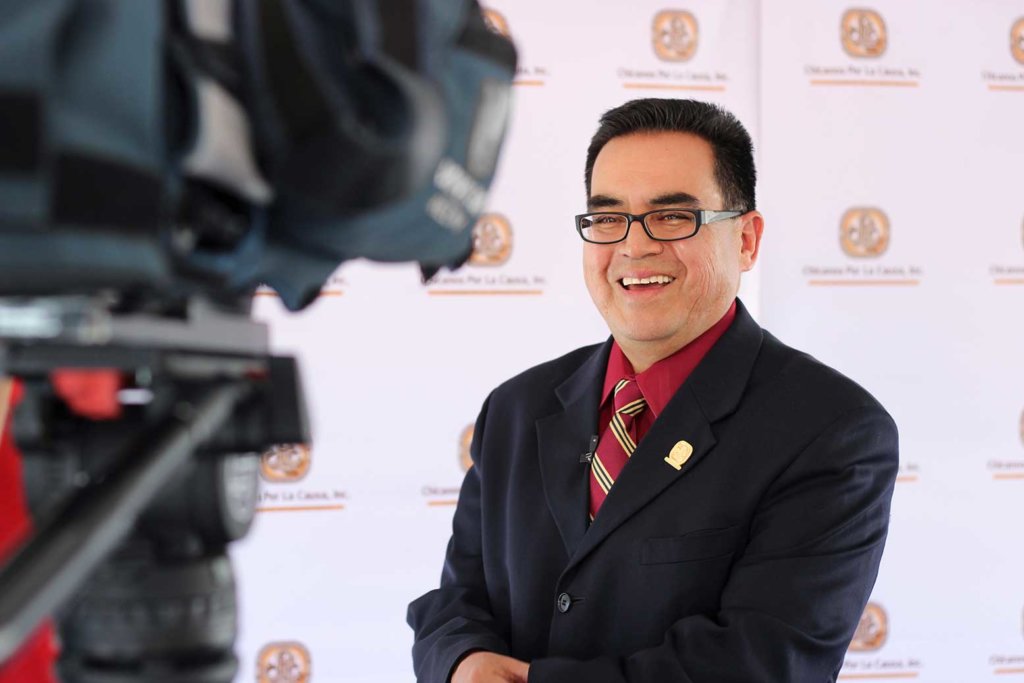
“We have evolved to what we are calling ‘El nuevo movimiento’ (‘The New Movement’), which is more of an inclusive, American values–focus, advocating for those who want to pursue the American Dream: access to health care, access to a good education, to get a good job, and access to capital. But at the same time, we are never going to forget our roots. That’s something that is very important to me and I really have brought us back to that,” said David Adame, President and CEO of CPLC and a member of the UnidosUS Board of Directors, an inspiring and influential figure in the nonprofit world. Why? Because he’s in the business of building communities.
Empowerment
Adame, who grew up in the community where CPLC started and “worked there as a kid,” has seen, lived, and influenced the changes the organization—and the community—have experienced. When Chicanos Por La Causa was born, it fought for fair representation, opportunities for higher education and jobs, and better housing. At that time, Chicanos weren’t part of the decision-making process, and they walked out of schools to raise awareness about the struggles Hispanic workers and students were going through. “Then, we walked out and we were on our own, our own community. Today the walkouts include everybody,” says Adame.
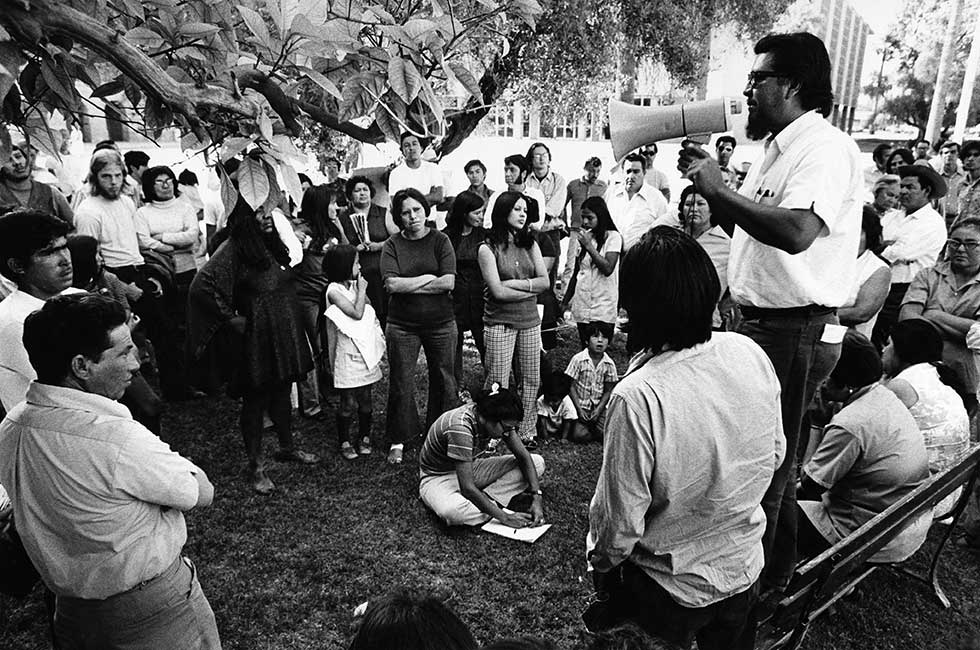
The rhetoric in today’s environment is attacking our community, justified by the idea of a resources shortage, in spite of the fact that “the human race has always adapted and figured out a way to make it work,” Adame continues. “Now we are saying, ‘it’s not just Latinos, there are poor people in every community, and we need to call this ‘The New Movement’ and be inclusive, make sure there are options,’” he explains.
Considering that inclusive view, where opportunities are given to all, CPLC changed its mission statement to “Empower lives.” “It doesn’t say: ‘Empower Latino lives’ or ‘Empower White lives.’ It says ‘Empower lives,’” Adame clarifies. Because CPLC is all about driving political and economic empowerment; that’s its mission, and it can only be accomplished when opportunities are given to all.
“We talk about a ‘hand-up,’ not a ‘handout’: we clearly say that we are not welfare,” CPLC’s uplifting leader says. “For any of our 40 programs we have a plan, and we say that if you get a scholarship from us to go to a university, we expect good grades, and we expect for you to do some community service, and after you graduate, continue to support the Cause. If you are in our organization for a challenge, like substance abuse, we expect you to follow your 12-step plan, do some community work, and when you are back on your feet, come back and help us. We will help you with everything we have, as long as you do your part, because we want you to be self-sufficient.”
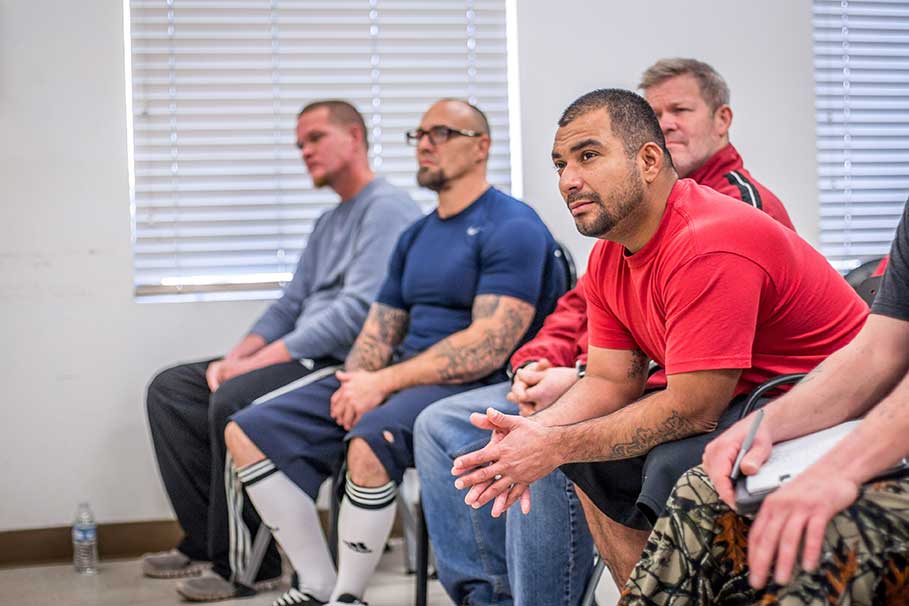
Self-sufficiency
Chicanos Por La Causa is the largest Community Development Corporation (CDC) in the state of Arizona, and in the last decade, CPLC has begun serving more states: Nevada in 2011, and New Mexico in 2013. Its goal is to continue expanding: “We are going to be in seven states: our bookends are California and Texas, and this year we are going to add Utah and Colorado, and we are also working in Latin America,” Adame says. “We already have an official organization in Mexico, and we want to be in other Latin American countries.” And for that, Adame and his team only see one way of achieving it: CPLC’s unique model of self-sufficiency, because “no money, no mission.”
CPLC leads by example, and just as it works with its clients to become self-sufficient, the organization strives to be self-sufficient as well: “Today, of our—give or take—$100 million budget, we generate a little over half of that ourselves, through our for-profit subsidiaries, our fee-for-service programs, etc., with the goal of self-generating three-quarters of our budget by the end of the next six years,” Adame explains.
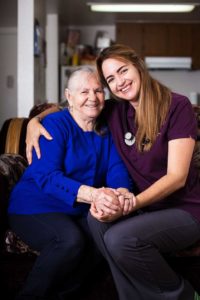
But how did CPLC come up about this forward-thinking strategy? It was Tommy Espinoza, current President and CEO of Raza Development Fund and former President and CEO of Chicanos Por La Causa, who turned CPLC from an advocacy organization to a nationally recognized Community Development Corporation through his entrepreneurial spirit. CPLC’s first for-profit venture was Tiempo, Inc., created in 1978 to provide affordable multi-family housing to low- and moderate-income families. “That was a turning point for creating CPLC’s for-profit model of self-sufficiency. Now we have seven for-profit companies and are investing in new ones all the time with the idea that our stakeholders are the community, so our profits are going to be invested right back in the community,” Adame continues.
CPLC pursued this model to be able to help anyone—individuals or organizations—regardless of their circumstances, economic situation, or immigration status. Its goal is to empower through CPLC’s four Areas of Impact—economic development, education, health and human services, and housing—and turn them into ambassadors for Chicanos Por La Causa.
The Cause varies from person to person: it can be the woman who is suffering domestic violence and needs a hand-up to start over; it can be the man who wants to start his own business and needs financing to set it up; it can be the immigrant who came with nothing and needs workforce development training. “This is the Cause, this is why people sacrifice. We want everyone to have a fair chance at the American Dream, a fair deal, and that’s what we are about,” Adame says.
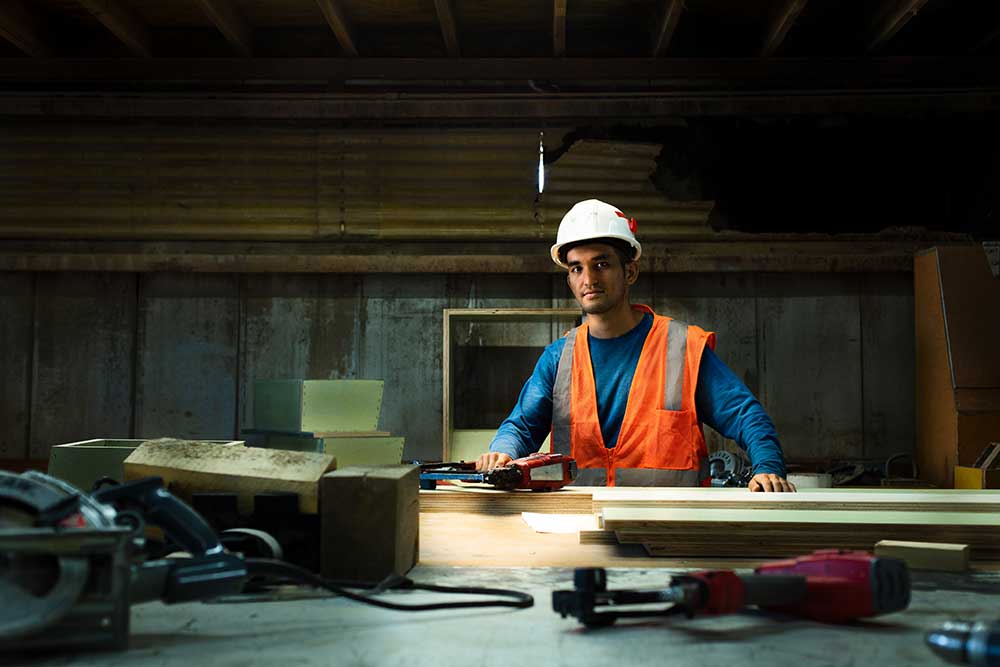
In 2018, CPLC helped 375,000 individuals pursue the American Dream. Their goal is to impact 1.5 million lives on an annual basis by the end of the next six years, because the need is there, and CPLC is growing the resources to be able to do it. “We demonstrate what we do, the impact that we make, and being able to show that we are inclusive: we look at it more like an economic class issue versus being just for Latinos. But—of course, I want to make sure it’s very clear—Latinos are the priority, yes, that’s how we started, we continue to put Latinos at the forefront because there are still plenty of challenges, but many of these challenges are now impacting everybody. By using that idea that it is about the economic class, it helps everybody and I think it’ll help us get more people working with us, and the more partners we get, the more powerful we are going to be. It shows that we are inclusive, and that we are moving the community’s needs and objectives forward by having an inclusive strategy.”
It is clear that Adame and his team have been thinking about this for a while. “Paraphrasing one of my predecessors, Ronnie López, we have to look at it from the standpoint that if you see somebody suffering from racism, from abuse, that person is you, regardless if the person is Latino or from any other community. We have to be prepared to step up and help the people that need a voice or need a hand-up.”
Leadership
For Chicanos Por La Causa, it’s all about social impact, ensuring that the individuals they help can get back on their feet so they can create stronger families and communities. “Our two north stars are that we need to get to impacting 1.5 million lives on an annual basis, and we need to meet an economic number,” Adame explains.
To fulfill those two north stars, Adame, an MBA graduate from the Arizona State University School of Global Management (who also holds an Honorary Doctorate Degree in Humane Letters from the University of Arizona), has surrounded himself with a leadership team who also hold MBAs, as well as many other credentials: “We want our team to have the entrepreneurial skills, connecting-the-dots type of training because we want to come up with innovative ways of creating value, so that our partners are having success, we have success, and most importantly our constituents benefit from what we are doing,” Adame says.
Adame’s leadership team is applying all their business training to solve socioeconomic problems and drive political empowerment. When CPLC added “political empowerment” to their mission statement, their reasoning behind it was to have all the tools necessary to empower our community, also on a political basis, to create “a whole comprehensive ecosystem so that any electoral body has at least two-thirds of representatives that are supportive of our community and looking for things that we all want as a community, all the American values we share,” Adame tells. “It is a very ambitious goal, but I think is something that we are very blessed, as a new leadership team, to have inherited: a grassroots foundation that is setting us up for the next 50 years.”
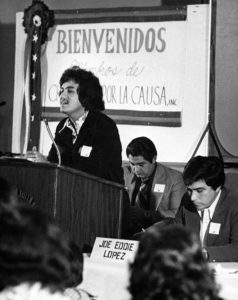
This goal is part of their seven-year strategy: “We want to empower our community.” For Adame, this involves not only encouraging his own staff to be part of boards, commissions, and committees—because that gives our community visibility and his staff experience—but they also want to build up the community to run for office, and build political power.
It is in that space that Adame speaks of the power of their UnidosUS partnership and with the UnidosUS Affiliate Network: “It is crucial. Nothing that any of us does by ourselves is going to have the same impact as doing it together. We need to continue to look for ways to leverage our strengths, to leverage our networks, to support our communities. My dream is that there are enough Affiliates where we can support the role that UnidosUS plays, being the national organization, doing the advocacy work, making sure that we are represented in Washington, DC. For that, we need to continue to work together.” Adame offers these final thoughts and challenges for all of us to consider:
- How do we leverage and expand our resources to make sure we gain political power?
- Recognizing that education is the equalizer, how do we make sure these opportunities are available to our community?
- How can we positively empower more people together?
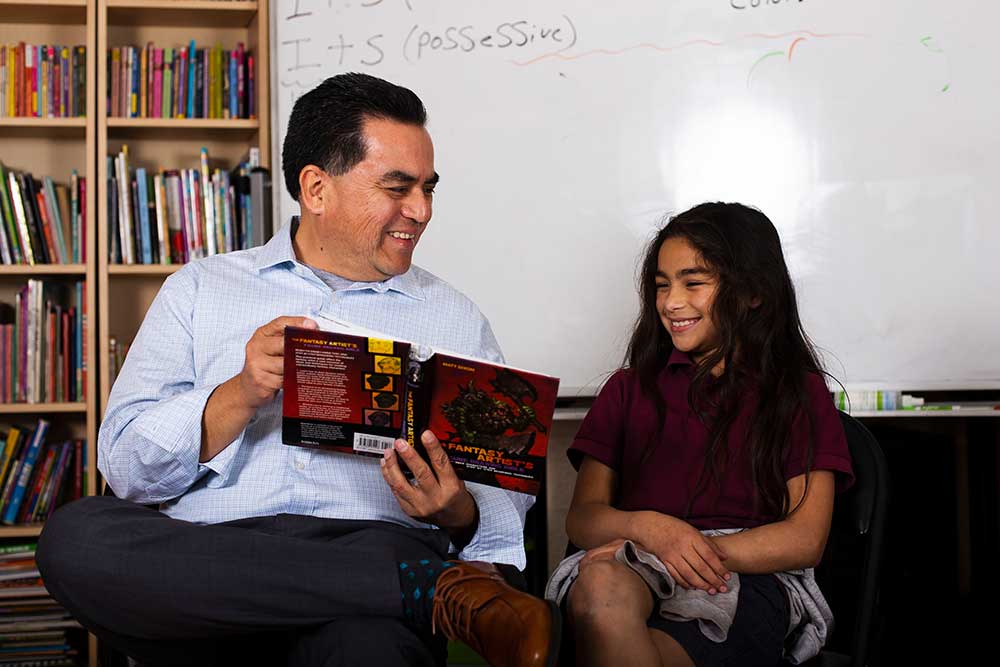
Adame understands that communities must work with one another to address these questions. It is about working together and helping each other, finding spaces where CPLC is not working, and support the organizations working on those efforts and help them strategize and thrive: “Because we are so successful, and we are so blessed, I see it as a responsibility to collaborate. I actually have a plaque behind my desk that says ‘Abundance’, so I call it ‘The Abundance Mentality:’ sharing, partnering, and helping other organizations,” he says.
To help mark its 50th anniversary, CPLC commissioned a book about the history of Arizona’s Chicano Movement edited by nationally-renowned historian Dr. Pete Dimas. The book, Here We Stand: Chicanos Por La Causa and Arizona’s Chicano/a Movement, 1968-1974, is available at cplc.org/HereWeStand.
CPLC also partnered with Arizona PBS to produce the documentary “Chicanos Por La Causa, Dime Quién Eres.” The film explores CPLC’s history and how the organization fits into the broader narrative of the Chicano movement in the United States. The documentary is now available online.
Visit cplc.org and follow them on social media to learn more about the successes of Chicanos Por La Causa and how to get involved.
If you want to meet this year’s Affiliates of the Year and feel inspired by their work, they will be presented at UnidosUS’s Annual Conference in San Diego, August 3 to 6 at the San Diego Convention Center. Registrations are now open: join us and connect with more than 3,000 attendees committed to championing Latinos.

